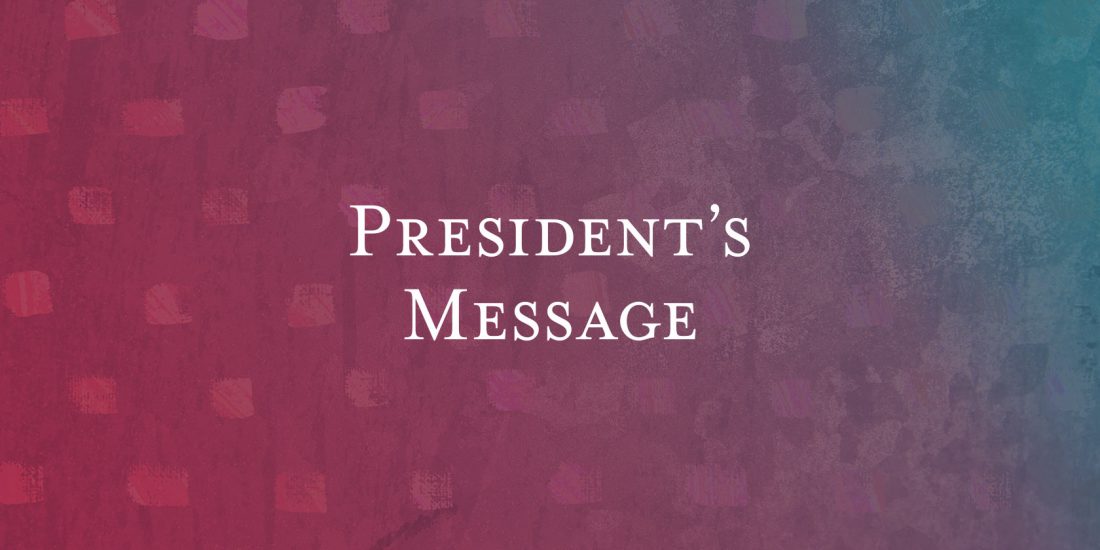
Immigration Laws in the Time of COVID-19: Perspectives from the Rule of Law
No reasonable lawyer would dispute the severe and unprecedented impact of the recent Covid-19 outbreak on our local legal landscape. Immigration laws are no exception. After the Singapore Government announced earlier this year that wide-ranging immigration restrictions would be imposed on permit and pass holders seeking to enter Singapore, many work-permit holders, students and foreign domestic workers who were overseas at the time faced extreme uncertainty – many were unable to return to their workplaces in Singapore or worse, were separated from their families and loved ones. This short article considers the drastic reforms that were made to immigration entry requirements for pass holders and raises questions on the scope of the restrictions and the compatibility of these restrictions with rule of law principles.1The author’s primary purpose in writing this article is to raise awareness of the potential issues and implications arising from the immigration reforms enacted during this public health emergency. She does not purport to devise solutions for the concerns she has aired but instead hopes to encourage deeper conversation and debate on these issues.
Overview of the Immigration Restrictions Introduced in March 2020
Since the onset of the COVID-19 outbreak at the start of the year, the Singapore Government has gradually tightened immigration restrictions in response to the evolving COVID-19 situation. When Singapore began to experience an influx of imported COVID-19 cases in March 2020, the Government announced, in a drastic move, that only Singaporean citizens and Permanent Residents would be able to enter Singapore without restriction. All other visa or work permit holders would only be allowed entry after obtaining entry approval from the relevant statutory body:2https://www.mfa.gov.sg/Overseas-Mission/Paris/Mission-Updates/2020/03/Border-and-Travel-Restrictions—France
- Existing work pass holders (employment pass, S-pass holders, including unemployed Dependant’s pass or Long Term visit pass holders) would have to seek entry approval from the Ministry of Manpower (MOM) before entering Singapore;3https://www.mom.gov.sg/newsroom/press-releases/2020/0318-mom-entry-approval-and-stay-home-notices-now-covers-all-new-and-existing-work-pass-holders
- Long term pass holders would have to obtain entry approval from the Immigration and Checkpoints Authority (ICA) before returning to Singapore as of 29 March 2020;4https://www.ica.gov.sg/news-and-publications/media-releases/media-release/entry-approval-required-for-all-long-term-pass-holders
- Foreign Domestic Workers (FDWs) would not be allowed to enter Singapore unless MOM’s approval has been granted;5https://www.mom.gov.sg/newsroom/press-releases/2020/0315-entry-approval-and-shn-requirements-for-all-new-and-returning-foreign-domestic-workers and
- Short Term visitors would not be allowed to enter or transit Singapore as of 11.59pm on 23 March 2020.6https://www.gov.sg/article/covid-19-travel-restrictions-for-foreign-visitors-entering-singapore
The following explanatory guidance was provided by the respective statutory bodies regarding the entry requirements for each category of visa and/or permit holders:
- For work-pass holders, MOM announced that, “Priority to be granted entry approval will be given to companies that provide essential services (e.g. healthcare and transport) and are supported by the relevant government agencies. While those that are not will be rejected”7This quote was set out in an earlier version of the entry approval form provided by the MOM, but does not appear in the current version of the form (as of 16 April 2020), which is accessible at < https://form.gov.sg/#!/5e3cbabee41f590012014e91>. A similar requirement was set out in the press release issued by the Ministry of Foreign Affairs, which states that pass holders may only obtain entry approval “if they work in essential sectors such as healthcare and transport” (please refer to the link at Footnote S/No. 2 above)., and further that “chances of getting an entry approval are very slim”8https://form.gov.sg/#!/5e3cbabee41f590012014e91;
- For long term pass holders, which includes both Long-Term Visit Pass and Student Pass holders, ICA stated in their media release that all Long Term Visit Pass holders would have to obtain ICA’s permission before commencing their journey to Singapore, although no information was provided regarding the requirements for obtaining such permission9https://www.ica.gov.sg/news-and-publications/media-releases/media-release/entry-approval-required-for-all-long-term-pass-holders;
- As for Student Pass holders, approval will be dependent on “the course in which the student is enrolled”, and entry approval will be prioritised for “those studying in publicly-funded Institutes of Higher Learning. STP holders, and those who have been granted IPA for STP, should submit their application to their respective educational institution, which will then forward their application to MOE”;10https://www.ica.gov.sg/news-and-publications/media-releases/media-release/entry-approval-required-for-all-long-term-pass-holders
- For foreign domestic workers, apart from mandatory stay-home notice requirements that foreign workers have to comply with if they manage to obtain approval to return to Singapore, no other guidance has been issued on the criteria that FDWs must fulfil before seeking approval; and
- All short-term visitors are no longer allowed to enter or transit Singapore, although “[s]pouse and child(ren) of Singapore residents (Singapore citizens and permanent residents) who need to visit Singapore due to extenuating reasons may submit their application for entry”11https://www.gov.sg/article/covid-19-travel-restrictions-for-foreign-visitors-entering-singapore.
These extensive restrictions have no doubt impacted the lives and livelihoods of thousands of pass holders who were working or residing in Singapore prior to its introduction. As work-pass holders and foreign domestic workers comprise a significant proportion of the Singapore workforce, such restrictions would, in turn, precipitate significant repercussions on our economy, such as manpower shortages, disruptions to business operations and management, amongst others. Unsurprisingly, many businesses in Singapore have already experienced disruptions in one form or another due to these restrictions.
Be that as it may, it is important for us to bear in mind the purpose for which the Government had implemented these restrictions – to safeguard the well-being of the Singapore society and to prevent undue strain on Singapore’s healthcare resources during the current public health emergency. However, it remains imperative that these restrictions are subject to democratic scrutiny, and that adequate safeguards are put in place to ensure that the Government acts within the legal limits of its powers. The call to uphold principles of transparency, democratic accountability, and equal protection under the law should not fall silent even in times of crisis.12‘Does law fall silent in the war against Covid-19?’ by Dr, Ronan Cormacain, 17 March 2020, published by Bingham Centre for the Rule of Law, accessible at <https://binghamcentre.biicl.org/comments/85/does-law-fall-silent-in-the-war-against-covid-19>
Transparency and Democratic Accountability
One of the key tenets of the rule of law is that laws must be clear, accessible, intelligible and predictable.13‘The Rule of Law’ lecture by the late Rt. Hon Lord Bingham of Cornhill KG on 16 November 2006, accessible at <https://www.cpl.law.cam.ac.uk/sir-david-williams-lectures2006-rule-law/rule-law-text-transcript? In this regard, the inherent ambiguity of the scope and underpinning rationale of the recent immigration restrictions raises compelling concerns.
Based on the contents of the various press releases described above, minimal explanation or guidance has been provided regarding the scope of the restrictions and the criteria to be fulfilled for applicants seeking entry approval into Singapore. While the restrictions appear to envisage that the statutory authorities may allow permit holders to enter Singapore in exceptional circumstances, these exceptions have not been set out clearly. In the absence of such crucial information, pass holders, employers and the wider community will be left in state of confusion over the ability of potential applicants to seek entry approval.
First, we examine the entry requirements for work-pass holders as stated in MOM’s press release. Save for brief mention that employees working in companies providing essential services such as “healthcare and transport” would receive priority, the MOM did not elaborate on any other areas of work that would fall within the scope of “essential services”, or expound on the principles that would guide its decision as to what “essential services” would entail.14The Ministry of Trade and Industry has issued a press release dated 3 April 2020 explaining what “essential services” would entail, although this was in a different context of stipulating the range of businesses providing “essential services” that may remain open in Singapore during the circuit-breaker period announced by the Singapore Government in April 2020. The guidance provided in the press release does not appear to apply to “essential services” criterion in the context of immigration restrictions. For reference, the press release is accessible at: <https://www.mti.gov.sg/-/media/MTI/Newsroom/Press-Releases/2020/03/Suspension-of-activities-at-workplace-premises-to-reduce-covid-19-transmission.pdf>. In the past weeks, we have experienced how employees working in a diverse range of sectors have played an essential role in supporting efforts to combat the outbreak – supermarkets, product manufacturers, banks, amongst others. If the MOM’s objective is to allow entry only to pass holders whose services are urgently required in Singapore during this period of time, an assessment based on the type of services provided by the employee’s company simply would not be conclusive.
A more holistic assessment of whether a work-pass holder is involved in providing “essential services” should take into consideration a range of factors, which may include the type of services provided by the company, the employee’s role in the company, and the extent to which remote-working is a feasible alternative for the employee, amongst others. It would be both impractical and prejudicial to distinguish between different applicants simply on the basis of the type of services provided by their place of employment. Further, it may be equally if not more disruptive to the local economy if employees occupying important roles in companies providing “non-essential” services are denied entry.
As for student pass holders, entry approval would be contingent on factors such as the course that the applicant has enrolled in and whether the applicant was studying in a publicly funded university. The guidelines, however, do not explain why automatic priority would be given to students studying in publicly-funded universities. Neither does it provide information on the types of university courses that would enable applicants to receive priority. More questions abound: Would students having impending examinations be granted approval? Or students who are enrolled in courses where distance-learning would not be conducive or appropriate? One would reasonably expect that these are important concerns that student pass holders may have, yet none of these concerns have been addressed in the press release.
Arguably, the broader the scope of Government’s powers, the greater the need for the Government to be open and transparent with the principles undergirding the decision-making process, and the very object of such decisions. This would greatly enhance the public’s trust in decisions made by the Government and in turn uphold democratic accountability.15‘Does law fall silent in the war against Covid-19?’ by Dr, Ronan Cormacain, 17 March 2020, published by Bingham Centre for the Rule of Law.
Arbitrariness and Equal Protection Under the Law
Critically, the absence of a clear rationale and lucid set of guiding principles would expose the Government to a greater risk of arbitrary decision-making. Even in times of crisis, the Government remains under a duty to ensure that all decisions are made fairly and in accordance with the principle of equal protection under the law. Where differential access to immigration benefits exists for any class of pass holders, sufficient justification should be provided.16Ibid. As the Government would likely be burdened with a tremendous caseload of applications during this period of time, a clearly defined set of guiding principles would also provide a firm grounding for the Government to ensure consistency and fairness in its decision-making process.
Fundamental Rights in a Time of Crisis
At all times, and even during an emergency, the law should, as far as practicable, continue to provide adequate protection of fundamental rights. On this premise, any assessment of the legality of the restrictions and consequential decisions should give due consideration to its impact on the rights of all potential applicants. In doing so, we confront an uncomfortable predicament where rights are perceived through the lens of relativity – inevitably, some rights will be prioritised whereas other rights would be compromised. While the restrictions aim to minimise the scale of the public health threat in order to preserve our right to life, the same restrictions would potentially impose considerable constraints on our rights to liberty and equal protection under the law. How should the balancing exercise be conducted, and what is the appropriate balance to be struck?
Notably, the restrictions have not carved out an exception for applicants who may suffer extreme hardship or prejudice as a consequence, save for short-term visitors who may apply for entry where they “need to visit Singapore in extenuating circumstances”. The definition of such “extenuating circumstances” is also unclear.
Some examples of potential applicants who may be severely prejudiced by the restrictions include:
- Work pass holders who may be separated from their families in Singapore;
- Work pass holders who ordinarily reside in Singapore and will have to incur significant expense in sourcing alternative accommodation overseas in the event that they are not allowed to re-enter;
- FDWs who may suffer significant financial hardship if they are unable to receive monthly remuneration as they are not able to resume work in Singapore during the restrictions;
- Families in Singapore who depend on FDWs to care for the vulnerable and elderly in their homes.
This is not to say that any degree of prejudice or hardship should constitute sufficient grounds for potential applicants to gain entry approval. We may envision a situation where the sheer magnitude of the outbreak would justify denying entry even to applicants who may suffer significant prejudice as a result. However, without clarity on the precise scope of the restrictions, the accompanying exceptions, and the rationale behind the restrictions, it would be difficult to assess if the restrictions are truly necessary and proportionate for the purpose of achieving the intended policy objectives.
No Statutory or Expedited Procedure for Appeal
At present, no statutory or expedited appeals procedure is available for applicants who wish to lodge an urgent appeal against any rejected application.17Under the Employment of Foreign Manpower Act, appeals may only be made against decisions rendered in respect of any prescribed infringements committed pursuant to the Act. The Immigration Act does not prescribe any appeals procedure for entry restrictions introduced by the Minister pursuant to the applicable provision under section 9 of the Act, which empowers a Minister to prohibit and the limit persons of any class from entering Singapore and to specify the period during which any class of persons entering Singapore may remain.
Due to the time-sensitive nature of any application for entry approval, the availability of an expedited appeals procedure would be crucial for applicants who may face imminent hardship as a result of any potentially erroneous or unjust decision made. An expedited appeals procedure would serve as a bulwark against any abuse of power by providing applicants with the opportunity to challenge any erroneous decision timeously.18‘Does law fall silent in the war against Covid-19?’ by Dr, Ronan Cormacain, 17 March 2020, published by Bingham Centre for the Rule of Law.
Practical Consequences
Due to the uncertainty faced by potential applicants over the requirements for entry approval, applicants will, more likely than not, decide to lodge an application regardless of whether they fall within the “essential services” exception or face “extenuating circumstances”. This is likely to lead to a deluge of applications, thereby burdening the caseload of the respective statutory bodies and causing more resources to be diverted from managing other critical aspects of the outbreak.
Concluding Thoughts
In these trying and challenging times we are prompted to reflect even more deeply on our commitment to ensuring that rule of law principles are upheld: access to justice, democratic accountability and equal protection under the law. The immigration restrictions demonstrate the potential for greater injustice to be caused if proper attention is not devoted to ensuring the clarity, accessibility and transparency of the applicable measures. Further, as the immigration restrictions are one of many extensive reforms that will be introduced during the period of the outbreak, we should continue to remain vigilant in scrutinising all forthcoming legal reforms in order to ensure that the said reforms are made within the four corners of the law.
The author was inspired to write this article after representing a work-pass holder whose application for entry into Singapore was denied while he was overseas on a business trip, shortly after the immigration restrictions were announced by the Singapore Government in March 2020. As a result of the restrictions, the work-pass holder was at risk of being separated from his immediate family in Singapore, including his young child.
All opinions expressed in this article are the author’s own and do not represent the views or opinions of her employer.
Endnotes
| ↑1 | The author’s primary purpose in writing this article is to raise awareness of the potential issues and implications arising from the immigration reforms enacted during this public health emergency. She does not purport to devise solutions for the concerns she has aired but instead hopes to encourage deeper conversation and debate on these issues. |
|---|---|
| ↑2 | https://www.mfa.gov.sg/Overseas-Mission/Paris/Mission-Updates/2020/03/Border-and-Travel-Restrictions—France |
| ↑3 | https://www.mom.gov.sg/newsroom/press-releases/2020/0318-mom-entry-approval-and-stay-home-notices-now-covers-all-new-and-existing-work-pass-holders |
| ↑4 | https://www.ica.gov.sg/news-and-publications/media-releases/media-release/entry-approval-required-for-all-long-term-pass-holders |
| ↑5 | https://www.mom.gov.sg/newsroom/press-releases/2020/0315-entry-approval-and-shn-requirements-for-all-new-and-returning-foreign-domestic-workers |
| ↑6 | https://www.gov.sg/article/covid-19-travel-restrictions-for-foreign-visitors-entering-singapore |
| ↑7 | This quote was set out in an earlier version of the entry approval form provided by the MOM, but does not appear in the current version of the form (as of 16 April 2020), which is accessible at < https://form.gov.sg/#!/5e3cbabee41f590012014e91>. A similar requirement was set out in the press release issued by the Ministry of Foreign Affairs, which states that pass holders may only obtain entry approval “if they work in essential sectors such as healthcare and transport” (please refer to the link at Footnote S/No. 2 above). |
| ↑8 | https://form.gov.sg/#!/5e3cbabee41f590012014e91 |
| ↑9 | https://www.ica.gov.sg/news-and-publications/media-releases/media-release/entry-approval-required-for-all-long-term-pass-holders |
| ↑10 | https://www.ica.gov.sg/news-and-publications/media-releases/media-release/entry-approval-required-for-all-long-term-pass-holders |
| ↑11 | https://www.gov.sg/article/covid-19-travel-restrictions-for-foreign-visitors-entering-singapore |
| ↑12 | ‘Does law fall silent in the war against Covid-19?’ by Dr, Ronan Cormacain, 17 March 2020, published by Bingham Centre for the Rule of Law, accessible at <https://binghamcentre.biicl.org/comments/85/does-law-fall-silent-in-the-war-against-covid-19> |
| ↑13 | ‘The Rule of Law’ lecture by the late Rt. Hon Lord Bingham of Cornhill KG on 16 November 2006, accessible at <https://www.cpl.law.cam.ac.uk/sir-david-williams-lectures2006-rule-law/rule-law-text-transcript? |
| ↑14 | The Ministry of Trade and Industry has issued a press release dated 3 April 2020 explaining what “essential services” would entail, although this was in a different context of stipulating the range of businesses providing “essential services” that may remain open in Singapore during the circuit-breaker period announced by the Singapore Government in April 2020. The guidance provided in the press release does not appear to apply to “essential services” criterion in the context of immigration restrictions. For reference, the press release is accessible at: <https://www.mti.gov.sg/-/media/MTI/Newsroom/Press-Releases/2020/03/Suspension-of-activities-at-workplace-premises-to-reduce-covid-19-transmission.pdf>. |
| ↑15 | ‘Does law fall silent in the war against Covid-19?’ by Dr, Ronan Cormacain, 17 March 2020, published by Bingham Centre for the Rule of Law. |
| ↑16 | Ibid. |
| ↑17 | Under the Employment of Foreign Manpower Act, appeals may only be made against decisions rendered in respect of any prescribed infringements committed pursuant to the Act. The Immigration Act does not prescribe any appeals procedure for entry restrictions introduced by the Minister pursuant to the applicable provision under section 9 of the Act, which empowers a Minister to prohibit and the limit persons of any class from entering Singapore and to specify the period during which any class of persons entering Singapore may remain. |
| ↑18 | ‘Does law fall silent in the war against Covid-19?’ by Dr, Ronan Cormacain, 17 March 2020, published by Bingham Centre for the Rule of Law. |






